MercoPress. South Atlantic News Agency
Tag: Inflation
-
Friday, September 13th 2019 - 12:38 UTC
August inflation in Argentina reverses tendency and again shoots up: 4%
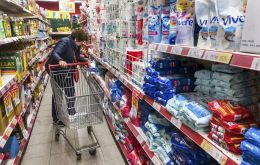
Prices in Argentina shot up last month after a shocking primary vote plunged the peso, reversing four months of declines.
-
Tuesday, September 10th 2019 - 09:50 UTC
August inflation in Brazil below target, with room for further rate cuts
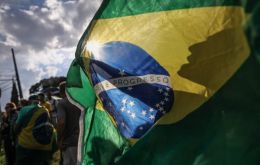
Consumer price inflation in Brazil was well contained in August, as forecast, reinforcing expectations of deeper interest rate cuts by the central bank as it tries to fire up economic growth.
-
Wednesday, August 28th 2019 - 09:59 UTC
Macri anticipates that Argentina's inflation will accelerate to 3% in August; country risk reaches 1.990 points

Argentine President Mauricio Macri said that monthly inflation would accelerate to 3% in August following a slump in the peso, as the central bank intervened heavily in the market on Tuesday to prop up the local currency.
-
Wednesday, July 17th 2019 - 22:19 UTC
Argentina's inflation expected to stay on the downpath in July
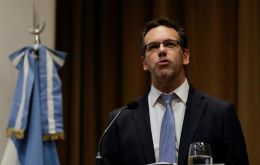
Argentine Central Bank President Guido Sandleris Tuesday admitted inflation remains “high,” but he forecast July's figures will be smaller than those of June in light of the current “clear trend” to the downside.
-
Saturday, May 11th 2019 - 09:03 UTC
Inflation in Brazil peaks to an annualized 4.9% during April
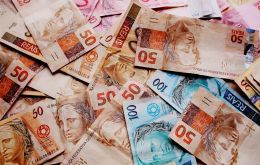
Annual consumer price inflation in Brazil rose to 4.9% in April, government statistics agency IBGE said on Friday, the highest in over two years and further above the central bank's end-year target of 4.25%.
-
Wednesday, April 17th 2019 - 09:58 UTC
Argentina's inflation 54.7% in 12-months; more monetary “contraction measures” and support from IMF
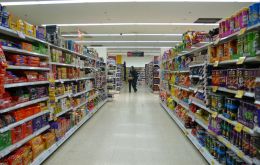
Argentina's inflation rate accelerated for the third straight month in March, the government statistics agency said on Tuesday, prompting the central bank to unveil fresh measures to temper raging inflation and protect the embattled peso currency.
-
Friday, April 12th 2019 - 09:11 UTC
Brazil inflation 0.75% in March and 4.58% in twelve months
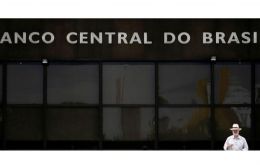
Brazil's inflation rate hit 0.75% in March, the fourth straight month of increases and the highest for the month since 2015 when it registered 1.32%, Brazil's National Institute of Geography and Statistics (IBGE) said on Wednesday.
-
Saturday, April 6th 2019 - 09:43 UTC
Trump again puts pressure on the Federal Reserve to lower interest rates

United States president Donald Trump said on Friday the US Federal Reserve should lower interest rates and take other unconventional measures to ease pressure on an economy that he said they slowed down. “I think they should drop rates,” Trump told reporters. “I think they really slowed us down. There's no inflation.”
-
Friday, April 5th 2019 - 09:26 UTC
Argentines take to the streets under pouring rain to protest Macri’s austerity

Argentine unions, small business owners and activists took to the rain-drenched streets of Buenos Aires on Thursday to protest against austerity measures under President Mauricio Macri, which they blame for amplifying worker hardships and sapping growth.
-
Sunday, March 31st 2019 - 17:07 UTC
Venezuela suffers the fifth mass blackout of the month
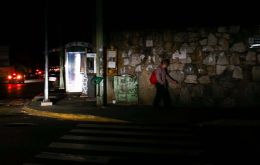
A new massive blackout was recorded this weekend in Venezuela after a nationwide interruption of electricity service this Friday, which was slowly restored in main cities as Caracas. However, a new relapse of the supply occurred on Saturday night, affecting 16 states of the country - more than half.
